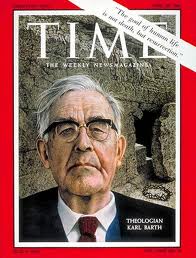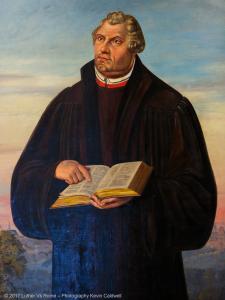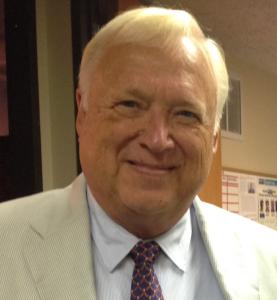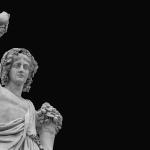ChatGPT Theology’s Image of God?

Are we ready for ChatGPT Theology’s Image of God? CNN’s A.J. Willingham worries that we might not be ready. Computer generated pictures of Jesus make the Messiah look handsome, rugged, sexy. “The conundrum of handsome AI Jesus has two parts,” says Willingham. “How Jesus has been depicted in the images fed to such machines, and how the machines interpret the images they are given in order to spit out new ones.” Are you and I likely to project onto Jesus or onto God the images of what we want the divine to represent? I’m old. I kinda like the AI generated picture below where Jesus tenderly caresses a senior citizen.
That your and my imaginations have a vested interest in depicting the divine is as old as the First Commandment in Exodus 20: No images? No drawings? No statues! No mental concepts?
C.S. Lewis once said he sat down to think about God without any images. After considerable thinking, he concluded that God looks like a massive sea of gray tapioca pudding. In sum, we humans are unable to think let alone think about God without diminishing God with our anthropomorphic images and metaphors.
Is ChatGPT theology’s image of God a human projection?

Is ChatGPT theology’s image of God a human projection? Yes, indeed.
Xenophanes of Colophon (570-478 BCE) satirically remarked: if horses and cattle would do theology, then “horses would draw forms of gods like hoses and cattle like cattle.” I wondered if this might be true. So, I visited a local farm and asked the first cow I saw to tell me what her god looks like. I punched her description into ChatGPT Dall-E, and this is what appeared. Xenophanes’ hypothesis seems confirmed. I did not feel a need to go to the barn to find a horse.
German philosopher Ludwig Feuerbach (1804-1872) was a wannabe Xenophanes. He concocted a similar version of the projection theory of religion. You and I project an imaginary picture of God onto the heavens, a divine father who cares for us and protects us. The God of Christianity, accordingly, is the outward projection of our inward human nature. God is chimeric — that is, the very idea of a higher being is dependent upon our human valuing of benevolence. That’s why God looks gracious.

This projection is a big mistake, said Feuerbach. Why? Because there’s no heavenly father objectively there in heaven. God the Father exists only in our misguided imaginations. Atheists such as Karl Marx and Sigmund Freud thought Feuerbach was pretty clever.
Does the logic of Feuerbach hold the field? No. At least for theologian Sally McFague (1933-2019), who warned us against taking images such as God the Father literally. Metaphorically? Yes, that’s OK. We might just as well imagine God as a mother, sheherd, or friend. Our mistake is not found in projecting images. Our mistake rather is to take these projected images as literally true. We might conclude that it’s just fine to ask ChatGPT theology’s image of God to fill a file on our computer. But we should avoid treating that image as if it literally depicts the divine.
Feuerbach vs Barth
Now let’s turn briefly to Swiss Reformed theologian Karl Barth (1886-1968). Just because we imagine the Father of Jesus Christ to be benevolent, caring, and gracious; it does not follow that this is false. It could be true. In fact, it is true. We learn this through the special revelation given us in the cross of Jesus Christ.

“Ludwig Feuerbach regards God as a projection of human self-consciousness,” observes Karl Barth (Church Dogmatics I/2: §13: 41). Barth acknowledges how as humans apart from divine revelation we might project ourselves onto God. Such projection belongs to our native propensity for idolatry. Yet, when God self-reveals, God hits us from beyond as an object, as a Thou addressing us. At that point we shed our projections and bow before the revealed mystery. Yes, even in revelation God remains mystery. Revelation “is always a veiling as well”(Church Dogmatics/2: §13: 41).
God or Idol? Must we choose?
Martin Luther places you and me in a tense dilemma. On the one hand, we must choose between God (Gott) and the idol (Abgott) we invent. On the other hand, we cannot avoid projecting images, wishes, and desires.

Entweder Gott oder Abgott. “A god is that to which we look for all good and in which we find refuge in every time of need. To have a god is nothing else than to trust and believe with our whole heart. As I have often said, the trust and faith of the heart alone make both God and an idol. If your faith and trust are right, then your God is the true God. On the other hand, if your trust is false and wrong, then you have not the true God. For these two belong together, faith and God. That to which your heart clings and entrusts itself is, I say, really your God” (Luther, Large Catechism).
In faith, we must choose between God as God really is or an idol we invent for our own control.
Our daily life consists of a tension between the God revealed as mystery and our incessant projections.
Conclusion
Can we rightly ask that ChatGPT theology’s image of God convey divine love, care, and grace? Yes, indeed. On what grounds? Because that’s what is revealed about God in the biblical account of Jesus Christ. But perhaps we should keep in mind the distinction between our projected image of God and the mystery of God that transcends that image.
ST 2020 ChatGPT Theology’s Image of God
ST 2018 What is Rahner’s Rule?
▓
Ted Peters directs traffic at the intersection of science, religion, and ethics. For Patheos, he posts articles and notices in the field of Public Theology.

Peters is an emeritus professor at the Graduate Theological Union, where he co-edits the journal, Theology and Science, on behalf of the Center for Theology and the Natural Sciences, in Berkeley, California, USA. He authored Playing God? Genetic Determinism and Human Freedom? (Routledge, 2nd ed., 2002) as well as Science, Theology, and Ethics (Ashgate 2003). He is editor of AI and IA: Utopia or Extinction? (ATF 2019) and co-editor along with Arvin Gouw and Brian Patrick Green of Religious Transhumanism and Its Critics (Roman and Littlefield/Lexington, 2022). He has just published The Voice of Christian Public Theology (ATF 2023). See his website: TedsTimelyTake.com.
His fictional spy thriller, Cyrus Twelve, follows the twists and turns of a transhumanist plot.
▓


















